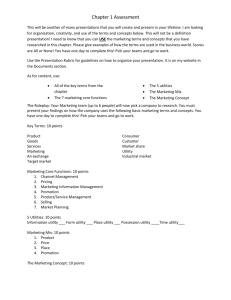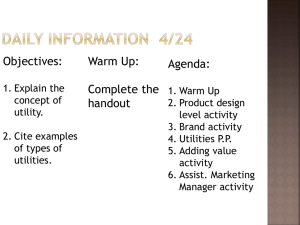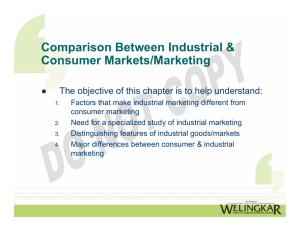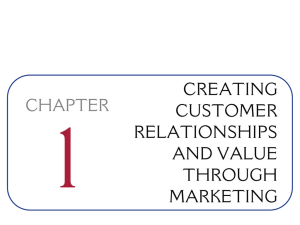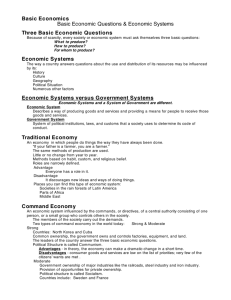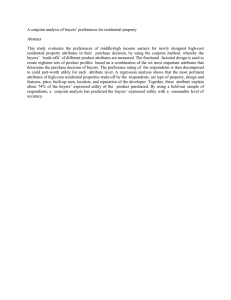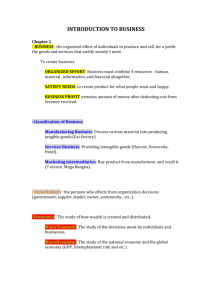Functions of Marketing - Market and Marketing Philosophies
advertisement
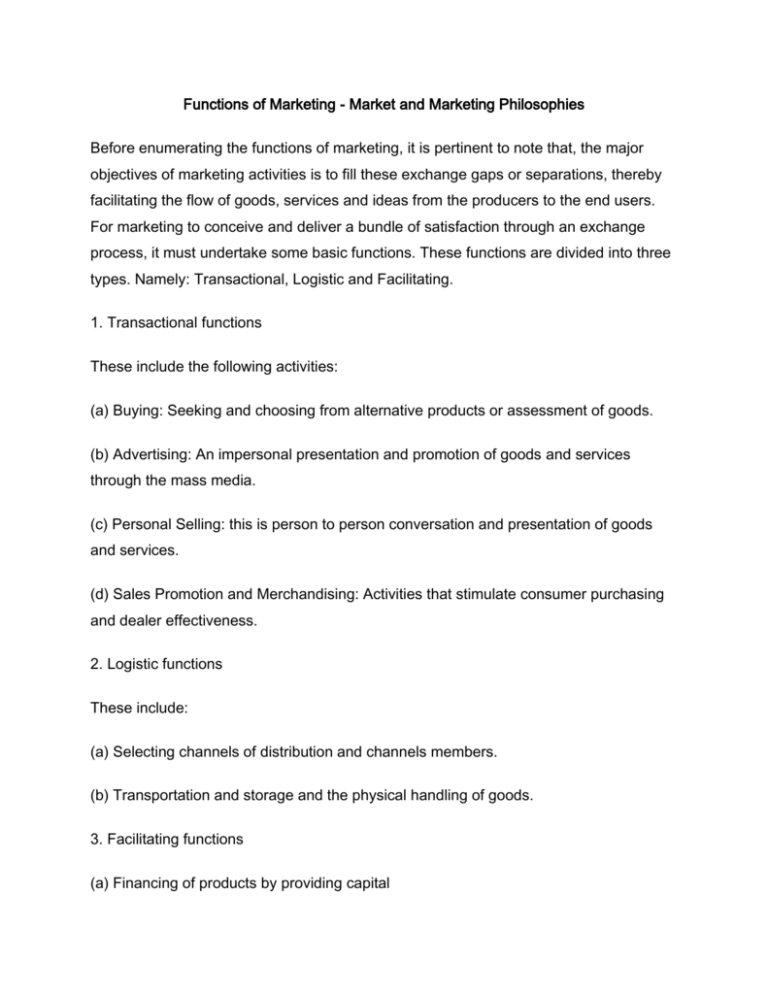
Functions of Marketing - Market and Marketing Philosophies Before enumerating the functions of marketing, it is pertinent to note that, the major objectives of marketing activities is to fill these exchange gaps or separations, thereby facilitating the flow of goods, services and ideas from the producers to the end users. For marketing to conceive and deliver a bundle of satisfaction through an exchange process, it must undertake some basic functions. These functions are divided into three types. Namely: Transactional, Logistic and Facilitating. 1. Transactional functions These include the following activities: (a) Buying: Seeking and choosing from alternative products or assessment of goods. (b) Advertising: An impersonal presentation and promotion of goods and services through the mass media. (c) Personal Selling: this is person to person conversation and presentation of goods and services. (d) Sales Promotion and Merchandising: Activities that stimulate consumer purchasing and dealer effectiveness. 2. Logistic functions These include: (a) Selecting channels of distribution and channels members. (b) Transportation and storage and the physical handling of goods. 3. Facilitating functions (a) Financing of products by providing capital (b) Risk taking - by holding or taking ownership (c) Proving market information (d) Post sale transaction- give after sales services. A synthesis of the above functions shows that by performing the above listed functions, marketing create four basic utilities: form, place, time and possession utilities. Form utility: Marketing creates form utility by transforming marketing information into goods, services or ideas. Place utility: This means making the product available where consumers need it. Time utility: Having it available when it is needed. In summary, marketing objectives is to have the right product at the right place, at the right time, and for the right person. What is a market? To the ordinary person, the word market invokes a picture of a place where buyers and sellers gather together to exchange their goods. This is the traditional view of a market. The meaning of a market has been extended to include new perspectives. These are captured in the explanation below: Kotler (1997:13) defined a market as "all the potential customers sharing a particular need or want who might be willing and able to engage in exchange to satisfy that need or want". Nwokoye (1996:7) defined the market for product or services as "individuals or organizations that have purchasing power and that are current or potential buyers of a product or services". The two definitions show that: 1. A market consists of individuals or organizations - business firms, nonprofit organization and government who take the form of buyers or sellers. 2. That such market participant has a common need - current or potential. 3. That the market participants have the willingness to participate in the transaction. 4. That the participants have the ability to engage in the transaction - purchasing power or something of value. From the two definitions, it is clear that a broad range of participant are involve in marketing, namely the producers, manufacturers or processors, farmers, retailers, consumers, transportation companies, advertising agencies, marketing research firms and users. There are different types of markets based on their shared characteristics. Examples include consumer markets, industrial markets, reseller markets, government markets, automobile markets, regional markets and international markets, etc. In this article, the term market is operationally defined as a social system that facilitates exchange of goods and services between and among individual, households, groups, and organization to satisfy their shared needs and wants.

